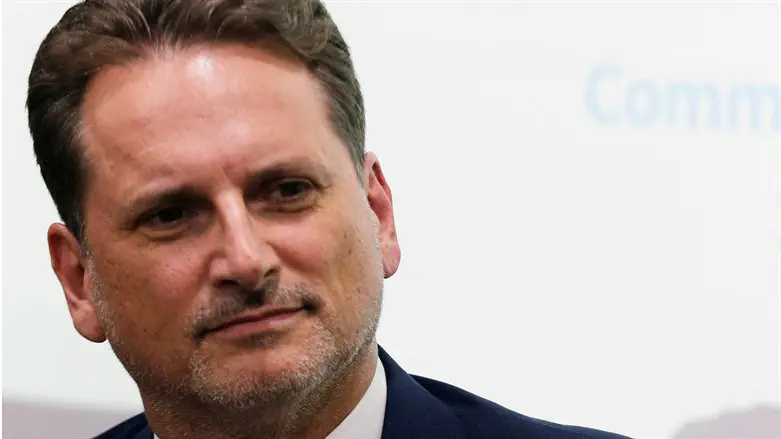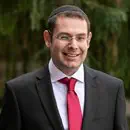
Pierre Krahenbuhl, the former Commissioner-General of UNRWA, the United Nations organization for the descendants of Arab refugees from Israel's War of Independence, met repeatedly with the leaders of Hamas and other terrorist organizations, documents presented by UN Watch show.
At one meeting in Beirut in 2017, Krahenbuhl met with the Hamas chief of foreign relations, Ali Baraka, as well as with leaders from Islamic Jihad, the Democratic Front for the Liberation of Palestine (DFLP) and the Popular Front for the Liberation of Palestine (PFLP). Krahenbuhl praised the "spirit of unity" between these terrorist organizations and UNRWA.
UN Watch noted that Ali Baraka was recently indicted by the US along with five other senior Hamas officials for "terrorism, murder conspiracy, and sanctions-evasion charges" related to the October 7 massacre."
The Islamic Jihad official who attended that meeting was Abu Imad al-Rifai, the leader of Islamic Jihad in Lebanon, who boasted about sending suicide bombers to attack US troops in Iraq in 2003.
Krahenbuhl told the terrorist leaders that UNRWA's role was to spread their narrative and not merely to provide humanitarian aid, saying, "We will not abandon the role entrusted to us, to be the historical witness to the injustice that has befallen the Palestinian people."
He added, "Regarding the principle of partnership you mentioned, and the necessity of being proactive so that we remain cooperative and not caught off guard, I completely agree with you and strongly support this perspective. I also have a request: that the spirit of partnership be mutual."
He gave the terrorist organizations a veto power over UNRWA decisions, telling them, "If you have any criticisms, observations, concerns, or issues you are dissatisfied with regarding UNRWA, let us come back and meet in similar gatherings—even if we meet a thousand times. Challenge our decisions, tell us, 'We do not agree with this decision, and we criticize it.' We might change it or even entirely tear it up."
Krahenbuhl also warned the terror leaders not to publicize that this meeting had taken place to protect UNRWA's credibility and funding from donor countries.
"If we can achieve this, it means we are united, and no one can separate us," Krahenbuhl told the terror leaders.
Last month, the Israeli Knesset passed two laws barring UNRWA from operating in Israel and Israeli officials from cooperating with UNRWA over the organization's proven ties to Hamas.
Israel revealed in January of this year that UNRWA staff participated in the October 7 Hamas attacks. It then presented a dossier showing that the UNRWA workers who participated in the Hamas massacre kidnapped a woman, handed out ammunition and actively took part in the massacre at Kibbutz Be’eri, where 97 people were murdered.
In October, the IDF announced that the IAF struck and eliminated the terrorist Mohammad Abu Itiwi, a Nukhba commander in the Al Bureij Battalion of Hamas' Central Camps Brigade. Mohammad Abu Itiwi has also been employed by UNRWA since July 2022.
On October 7th, Mohammad Abu Itiwi was involved in the murder and abduction of Israeli civilians. Abu Itiwi led the murderous attack on the bomb shelter on Route 232 in the area of Re'im in southern Israel.
In September, Sharif Abu al-Amin, a senior Hamas official in Lebanon and chairman of UNRWA's teachers' union in that country, was eliminated in an airstrike in Tyre.
Following his term as head of UNRWA, Krahenbuhl became the head of the International Committee of the Red Cross, which has been accused anti-Israel bias for failing to meet with a single Israeli hostage in the 13 months since the October 7 massacre and for not making the plight of the Israeli hostages a priority.
In February, Israel revealed that 440 UNRWA employees were active members of Hamas' military wing.
In addition, that same month, a Hamas terror tunnel was found underneath UNRWA's main headquarters in Gaza. Hamas siphoned off electricity from the UNRWA headquarters.
